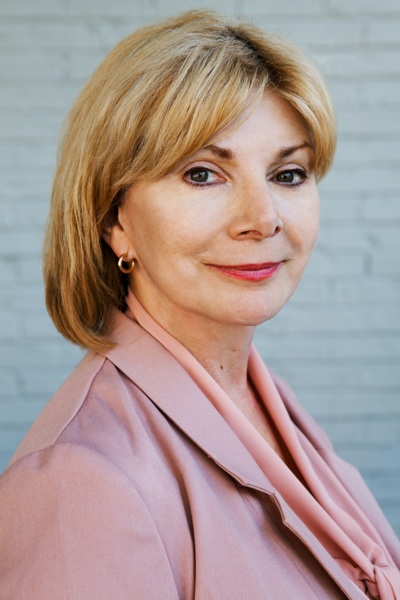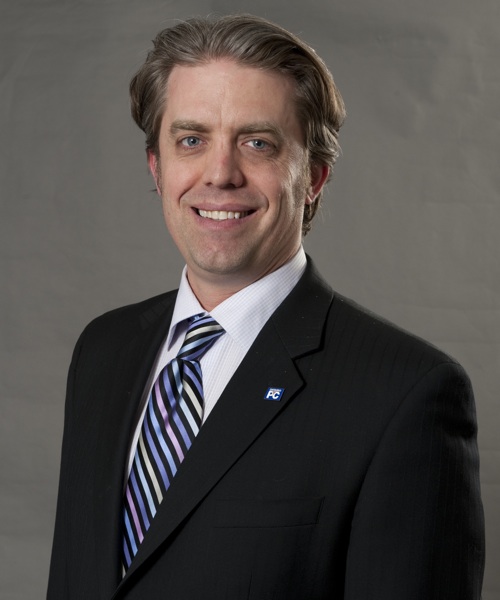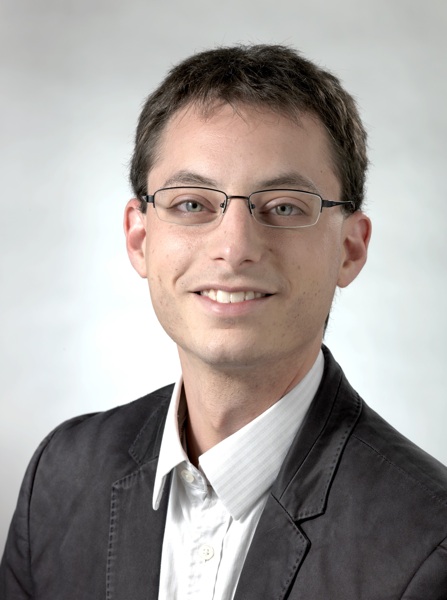Compiled by Emina Gamulin, Perry King, and Rebecca Payne
Check out the links below about our Q & A with candidates for the Parkdale-High Park riding.
Question One: The state of health care in PHP
Question Two: Poverty
Question Three: Clean trains
Question Four: Energy inflation
Question Five: the Ontario Arts Council
Parkdale-High Park is composed of seven neighbourhoods: Swansea, High Park North, the south half of The Junction, Runnymede-Bloor West Village, Lambton-Baby Point, Roncesvalles, and Parkdale directly to the south.
The statistics:
Population = 102,142 *
Electoral = 71,954
Political History
2007 = New Democrat **
2003 = Liberal **
1999 = Liberal **
* Cited from StatsCan 2006 Census
** Cited from Elections Ontario
Rev. Dr. Cheri DiNovo is the Member of Provincial Parliament for Parkdale-High Park and the Deputy Speaker on the Ontario Legislative Assembly. DiNovo was first elected into the legislature in 2006 in a by-election and re-elected in 2007. An award winning author, DiNovo is an outspoken social justice activist and a former United Church Minister who was voted Best MPP by NOW magazine. In addition to being described by the Toronto Star as a “spark plug” at Queen’s Park and a leader who “personifies an emerging consensus,” Cheri DiNovo was named “Favourite Politician” by the Parkdale Liberty for her ongoing pledge to donate her monthly MPP salary raise to local organizations and charities.
Having devoted his career to technology innovation, Progressive Conservative candidate Joe Ganetakos and his wife Mary are now looking to give back to their community through public service. Used to working under tight deadlines while helping to design some of Ontario’s most advanced electronic games, he’s remained steady under pressure, never shirking away from challenges. Joe pledges to work passionately on any efforts he’s involved with on behalf of the residents of Parkdale-High Park. Joe believes that the taxpayers of Parkdale-High Park deserve a strong voice in government, and this has led him to commit to helping Tim Hudak giveback to Ontarians the strong economy that he believes they have always had with Progressive Conservative governments.
Liberal Party candidate Cortney Pasternak is a professional broadcast journalist. She also teaches journalism at the university and college level. She served as both the Global TV Queen’s Park Bureau Chief and CTV’s National Parliamentary Correspondent reporting from around the globe on a range of topics including politics, health care, education, human rights, environment, poverty, and crime. She currently runs a small, home-based business. Cortney is married with two young children and shares her home with three cats with great personalities.
Justin Trottier has dedicated his life to balancing his love of science and technology with his interest in public education, community service, and social advocacy. He studied engineering at the University of Toronto and worked in research and development in alternative energy systems. He then founded the national educational charity the Centre for Inquiry. Justin speaks regularly in the media in defence of fundamental freedoms, civil and human rights, and participates in public events bringing together groups from different backgrounds to discuss ethics and social policy. He also volunteers with youth-focused community groups, including Pathways to Education and tutoring at the Parkdale Library.
Also running in PHP are Redmond Weissenberger for the Freedom Party Of Ontario, Thomas Zaugg of the People’s Political Party of Ontario, Rod Rojas of the Ontario Libertarian Party, and four independent candidates: George Babula, Cecilia Luu, Bohdan Ewhen Radejewsky, and Istvan Tar. The Gleaner was unable to reach the remaining candidates in time for this Q & A.
The Questions
1. What is the most important issue for our health care system? What will you do to improve the health of residents in Parkdale-High Park?
—Perry King, senior editor, Gleaner Community Press
DiNovo: Right now if you visited any of the retirement homes or long-term care facilities in our riding they would tell you the same thing—they don’t get enough from the provincial government to provide quality care. The provincial government actually pays more to feed prisoners right now than it does to pay for long-term care residents. We’ve had a government in Ontario that has chipped away medicare at the edges rather than expand it. We need dental health care, not just for a few, but for many who cannot afford it. Many Ontarians cannot afford dental care, and don’t get it. This is unconscionable.
Ganetakos: I was of another party stripe, and one of the [things] that attracted me to the PCs was the plan to invest heavily in health care. But the difference with what we want to do is invest it directly into front line care. So if you are a doctor or nurse we want to basically make sure that the money goes to those direct staff. If you are working with a patient, you are going to be getting our full support. In the pasts it has not gone that way. Our view is that the provincial bureaucracy has been not effective and has acted as a political shield. [We will] invest $6.1 billion into health care, but ensure that it gets front-line staff.
Pasternak: As someone who has used the health care system, who has three family members in and out of St. Joe’s over the last year, there are more problems than I’d like to think. I think that the investments that this government has made have been unbelievable. We’ve lowered wait times, we’ve improved access to family doctors. We have to start treating more people in the community, and the Liberal Party is making investments there. We’re talking about community health centres, places like Runnymede. Aside from covering, as a reporter, many issues around mental health, I’ve also advocated and had to take care of people with mental health issues. These are things that need to be addressed and not in the emergency rooms.
Trottier: Within all the broad priorities of the health care infrastructure, I think the one we’re addressing the least well is mental health. The Canada Health Act and other pieces of legislation haven’t done a very good job to integrate mental health into the rest of its purview. Medicare, when it was set up, was set up to deal mostly with accidents and to keep people having a family doctor. It wasn’t really structured to deal with chronic or acute conditions, and certainly not mental health. We’re very much a party that sees the importance of empowering local communities to make health care decisions, and one way to do that is to make sure that the physical proximity of health care hubs are as close as possible to the neighbourhoods that need them the most.
DiNovo: You’re talking to the woman who brought in the $10 minimum wage bill. And thanks to that bill, in our riding, a million Ontarians got a twenty-eight per cent raise. So that’s significant, and that was within the first six months of my being elected, and that’s as a member of the Opposition in a ten-person caucus, in a 107-person government. I’m part of the provincial legislature and I sit in Opposition Government primarily because of poverty issues. One in six children in our riding, and in our city, and in our province, live in poverty. We would definitely reassess the ODSP rates and raise them. We’ve also promised that we would be building at least 10,000 new [units] in housing every year. Also, introduce legislation to allow municipalities to call for inclusionary zoning.
Ganetakos: One of the things we’re offering that I’m really happy about is support for those who are on OW and ODSP. There are those that are working part-time and are trying to improve their quality of life and they are trying to takes steps forward. But the Liberal government claws back moneys from their paycheque. It’s a disincentive to try. Our plan is to let those on OW and ODSP to keep more of their money. It may not be possible for some, and we understand that, but we want them to have more money that they work for so that they can have more dignity in their lives.
Pasternak: Daycare is a huge issue in this riding, and one that I will be championing to make sure we have lots more, we desperately need them in this riding. Full-day kindergarten is a real, measurable investment made by the McGuinty government that helps alleviate the poverty cycle in so many ways. The other thing that we’re doing is, people may not be able to feel it, but the fact is that we just went through one of the worst recessions since the Great Depression, and we’ve come out stronger, we’ve created more jobs than the other provinces combined. The truth is, when the economy is lifted up, everyone gets lifted up.
Trottier: One Green policy area that I really think is important is the idea of taxing resource use and property use, and taxing less income and earned value. For us, we would seek to reduce income tax and one of our policies is to reduce it by a certain percentage dependent on the amount of income a person is bringing in, but in such a way that those with the smallest income, the poorest among us, would benefit the most in income reduction. We would offset [those decreased tax dollars] by increasing the tax on property and on resource use. This has the benefit of encouraging the use of currently vacant property, which is an issue right along Queen Street.
DiNovo: Absolutely. I’ve been a huge proponent, a member of the Ontario CTC, and the only one at Queen’s Park by the way. The only hurdle standing in our way between electric, clean trains in our neighbourhood and the diesel that they’ve already inked the deal for, is Dalton McGuinty and the Liberal government. Even Rob Ford has come out saying that electric trains are what we need. The Conservatives have said electric trains are what we need. Literally only the Liberals stand between us and electric clean trains.
Pasternak: I’m a mother of a 5-year-old with asthma. Up to two weeks ago, my son couldn’t go out on smoggy days. It’s been very difficult for us. To me, as a mother, I fully support the electrification, but the truth is two things. One, yes, I support electrification, but we do need to do more than just talk about [it]. The fact is that we need to make this area a hub, we need to make it one in order to revitalize the main streets, and we are moving towards that. Electrification is good on so many levels, it’s not just about the environment, it’s about being able to create more than one stop—because the trains can stop here.
Trottier: I was just reviewing the recent news on the airport link and electrification dilemma that we’re in. My understanding is that all the stakeholders involved approve the move to electrification. The question is how to do it in a timely manner. I think we should do that immediately, it would save us money in the long run. I don’t understand why it’s taking, apparently now, a few years to do an environmental assessment on the move to electrification, when it’s taken less time to assess the $1 billion original building plan. We should be able to move a lot faster than we are, it would save us money, save us emissions. I definitely support the Clean Train Coalition.
4. How does your party plan to protect Ontarians from energy inflation related to home heating and electricity in the near and long-term and why?
—Chris Chopik
DiNovo: We have promised to take the HST off essentials like home heating and hydro. We think the way forward is not nuclear, because it’s expensive. We think the way forward is to really ratchet up our reusable and recyclable programs. We’ve also promised as government we would introduce an extra $5,000 for the retrofitting program per home owner. We’re going to close the coal-firing plants. McGuinty still hasn’t done it and promised to do it in 2007.
Ganetakos: Removing the Ontario portion of the HST on home energy bills and heating, we know will have a positive impact. We’re not anti anything. We’re pro green, pro solar, pro wind—we’re just anti lousy, lousy deals. That’s the honest truth. I come from the private sector and my experience is, if you only have one bidder on the contract, you are not going to get the best price. You’re not even going to get something competitive. This deal stinks and it’s also been very concealed. By getting out of that energy experiment, and just ensuring that we have highly efficient, very safe, very well-regulated nuclear energy, which is the bulk of power by a country mile.
Pasternak: We’re giving a 10 per cent rebate off all electricity bills and hydro bills over the next five years to help people adjust to the increasing costs of energy. The truth is hydro actually went up more under the last provincial government, the Harris Conservatives, than they have under us. We’ve got to recognize that we are some of the biggest consumers in the world for energy. To say that we should just have cheap energy—it’s well-known that we have some of the cheapest energy anywhere in the world. Let’s come back to Ontario Clean Energy Benefit, reductions on all hydro bills for families, for farmers, for seniors and small businesses. That’s about $150 per family, $1,700 for small businesses.
Trottier: I think it’s important to give an honest assessment of what’s actually happening. I don’t think any party can honestly commit to stopping energy inflation, the rise of energy prices. I don’t think that’s realistic. I think there are a lot of things that we can do to conserve better, I think every dollar we invest in conservation is worth much more than the amount of money we would have to spend on expensive nuclear reactors, to offset the increasing energy needs, or coal-fire power plants—that sort of thing. Our party is very much in terms of tax benefits and tax credits, which would promote home retrofitting. We have the Green Energy Building Plan, which would tax credits back to homeowners and business owners for energy audits that would seem to make these kind of retrofits—that we could produce. Thirty per cent is our general proposal.
5. Please comment on the adequacy of the Ontario Arts Council at its present level of funding.
—David Perlman
DiNovo: The simple answer is one word—it’s inadequate. We need to make Ontario a hub for artists. I used to be the culture critic, and as such I brought in a Status of the Artist legislation, which was not passed. We have no Status of the Artist legislation in Ontario, not for children, not for adults. We need to have income tax averaging for them, because, as most artists know, sometimes you earn a lot of money in one year the other year you earn nothing, and yet you pay a whole lot of taxes one year. We should definitely fund the arts better, including tax credits. Instead of spending their valuable time writing proposals, they should be able to count on a certain amount of money coming from Queen’s Park and it certainly should be more than they get now.
Ganetakos: As a person who is not on the Ontario Arts Council, who is not witnessing its current funding, all I can tell you is that I’m an OCA grad, I’ve worked in the arts on the digital side of things for ten years and I’m raring to go to be champion for the arts. I believe you can make a solid return on investment for the arts, but unfortunately right now, door-to-door, that’s not what people are telling me. I’ll bet you I am more directly connected to the arts than many, many candidates, federally or provincially, and I would fight for it tooth and nail. But right now our priorities are what’s in the Change Book.
Pasternak: The Liberals are known to be very good to the arts community. I come from broadcasting, my husband used to produce documentaries, and they needed to access funding. I know that moving forward, the government is very big on digital media and investing a lot more into digital media. I come from a artists’ background. I think it’s not just about supporting artists, it’s an economy. It brings people here to work, and I’m a huge supporter.
Trottier: I understand competing priorities, and how everybody sort of wants to increase the chunk of the pie for their particular area. I can’t make lofty promises about increasing budgets for any one area. All I can say is that I understand the importance of all of the those different stakeholders, and the Green Party would do what it can to provide all sorts of financial benefits to local community hubs and leave it to those community centres and hubs to decide on allocations into the community like social service projects, artistic brands, that sort of thing.
All answers have been edited for space. Candidates’ bios are their own.






1 response so far ↓
1 Jim // Jan 12, 2012 at 4:05 pm
Save High Park from the many developers who want to surround the park with huge glass condominium buildings.
Sign the petition http://www.gopetition.com/petitions/the-intensification-of-high-park.html